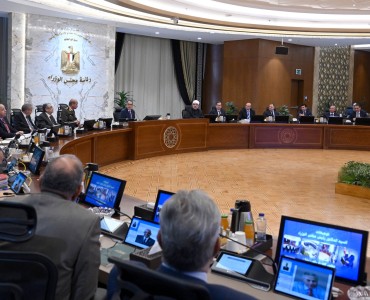Egypt and UAE have become close across the economic and political spheres over the past three years, Egyptian Petroleum Minister, Tarek El Molla said, as Cairo has been receiving a flow of broad support from the UAE mainly in gas and oil products shipments, Khaleej Times reported.
“We look forward to continuing and developing such a strategic cooperation, and providing all necessary facilitations to increase the UAE’s investments in the Egyptian oil industry,” El Molla said in an exclusive interview with Khaleej Times.
The minister stated that UAE was one of the first states to offer support after the June 30th revolution, which removed President Mohamed Morsi. UAE sent shipments of oil and gas almost immediately without waiting for procedures such as contracts. Since that time, the EGPC and Abu Dhabi National Oil Company have done business for $3.7b worth of products, El Molla said.
El Molla emphasized that the states across the region could benefit from following UAE’s model for subsidizing energy, adding that Egypt’s participation in the Abu Dhabi International Petroleum Exhibition and Conference (ADIPEC) demonstrates Egypt’s interest in learning from the Emiratis to optimize new and renewable energy resources.
El Molla stated that high production and slowing global demand were likely to keep energy prices low through 2017, making cooperation and coordination between states important. He said that diversification, wise management of natural and financial resources, and learning from previous global oil crises have minimized the negative impacts of low prices for the region’s major producers.
In forecasting 2016, El Molla also stated that this year Egypt would introduce three international bids for oil and gas exploration, 25 new agreements worth $5.4b, the start of production at eight projects in gas field development worth $2.1b producing at a daily rate of 450mcf, and beginning of operation of two new projects in the fields of fertilizers and petrochemicals at over $3b worth of investments.
El Molla stated that Egypt currently imported 50% of its butane needs, 30% of its diesel needs and 15% of its gasoline – imports, which have been less expensive with lower global prices. Still, energy is sold below production costs in Egypt, which spurs demand. In 2016, the country hopes to increase production of crude oil and condensates to reach 700,000 b/d – 15,000 more barrels than last year. “We also aim at increasing natural gas production to reach 4.7b b/d, which is 400m more barrels than the current production,” he added.
El Molla’s outlook for 2017 in Egypt is promising, with a number of new fields coming online. El Molla estimates that the North Alexandria project will produce at a daily production rate of 700mcf, and the Shorouk Gas project at a daily production rate of 900mcf. Egypt is currently forced to import 1bcf/d of LNG, an expensive endeavor.
To close the supply-demand gap, Egypt is promoting greater exploration and reducing dues owed to foreign companies to $3b from $3.6b and is negotiating for adjusted prices the Egyptian government will pay. On the demand side, El Molla added that subsidies will be fixed in a 3-5 year period.











